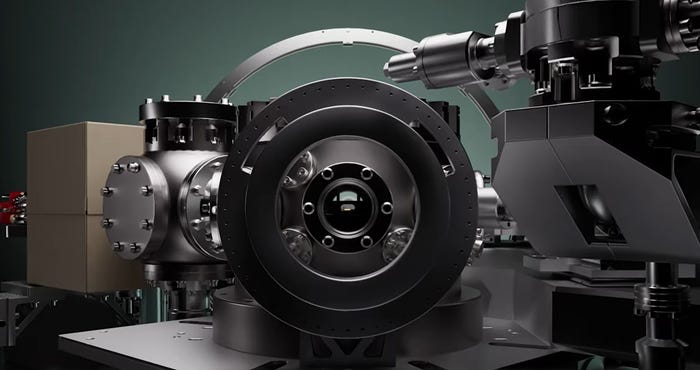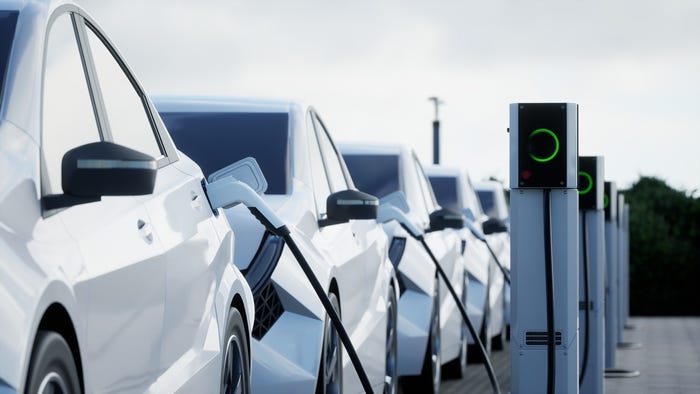
Connects decision-makers and solutions creators to what's next in quantum computing
Quantum AI 2025: Industry Leaders Weigh in on the Year AheadQuantum AI 2025: Industry Leaders Weigh in on the Year Ahead
Industry insight into the growing synergy between AI and quantum computing in 2025

The convergence of quantum computing and artificial intelligence (AI) is poised to redefine the technological landscape in 2025.
As these transformative technologies evolve, their synergy is creating unprecedented opportunities to solve problems once deemed insurmountable. The integration of AI’s unparalleled efficiency and adaptability with quantum computing’s paradigm-shifting power offers a glimpse into a future where computational possibilities expand exponentially.
To explore this emerging frontier, Enter Quantum gathered insights from leading quantum computing providers and industry experts. Here are the predictions, trends and innovations expected to shape the interplay between AI and quantum computing in the coming year, from breakthroughs in hybrid systems and error correction to advancements in algorithm design and sustainable computing.
Chris Ballance, CEO and co-founder, Oxford Ionics
“In 2025, we’ll realize there’s no winner between AI and quantum computing.
With the excitement and buzz around both AI and quantum computing, 2024 saw a competition between the two begin to emerge. As early quantum systems come to market in 2025, we’ll realize that there’s no winner between the two. In fact, there’s no competition at all.
AI and quantum computing solve two completely different issues. Whilst AI can enhance productivity, save time and act as a force multiplier for human teams, quantum computing represents a complete paradigm shift in the type of compute power we have at our disposal, revolutionizing our ability to solve problems that would otherwise be impossible with any form of classical computing. But the two will be able to work together. In fact, we already know that quantum computing will be able to solve one of AI’s most critical challenges: access to physical compute power.
It’s important to remember that throughout history, any improvement in compute power has changed the world for good, at first in ways we can anticipate and then in ways we could have never imagined. AI and quantum computing will likely intersect to power innovations that we can’t possibly predict now in the heat of the moment, but we’ll look back in 10 years and it will have been obvious.”
Enrique Lizaso Olmos, CEO and co-founder, Multiverse Computing
“In 2025, Quantum Computing will further solidify its position as a transformative technology with real-world applications. Also, the synergy between quantum computing and artificial intelligence (AI) will become increasingly evident.
Quantum technology is emerging as a critical tool for enhancing AI's efficiency, while AI plays a key role in integrating quantum solutions into practical applications. This reciprocal relationship has enabled both technologies to address their respective challenges more effectively.
Also, companies are increasingly focused on optimizing AI investments by seeking solutions that deliver models with reduced computational costs while tailoring them to specific use cases. This growing demand for efficiency and specialization is driving the industry toward advanced optimization technologies, such as those we offer.
We are actively fostering collaborations and partnerships to scale CompactifAI to enable companies across industries to achieve more sustainable, cost-effective and efficient AI implementations. This strategic expansion positions CompactifAI as a critical solution for addressing the growing demand for cost-efficient AI technologies in an environmentally conscious world."
Manisha Khanna, AI strategist, SAS
“While organizations are investing billions of dollars in AI technologies, some technology companies and research institutions are funding projects to explore the next frontier of computing: Quantum AI (QAI).
The convergence of quantum computing and artificial intelligence, moving toward QAI is real and promises to unlock new levels of computational power and efficiency. Once the essential parts like talent and infrastructure are in place in the next five to 10 years, QAI will produce enhanced algorithms that run on lightning-fast quantum computers to improve technology’s performance. This performance improvement will rapidly help solve societal challenges including drug discovery, supply chain management, risk assessment and more.”
Jan Goetz, co-CEO and co-founder, IQM Quantum Computers
“In 2025, the combination of artificial intelligence and quantum computing is expected to pick up speed. Hybrid quantum-AI systems will impact fields like optimization, drug discovery and climate modeling, while AI-assisted quantum error mitigation will significantly enhance the reliability and scalability of quantum technologies.
In addition, we expect that progress in quantum error correction will mark a pivotal moment, with scalable error-correcting codes reducing overhead for fault-tolerant quantum computing and the first logical qubits surpassing physical qubits in error rates. Complementing these advancements, innovations in hardware will improve coherence times and qubit connectivity, strengthening the foundation for robust quantum systems.
Algorithmic development will take center stage with novel algorithms developed in the fields of finance, logistics and chemistry. AI-driven discoveries will streamline quantum algorithm design and enhanced algorithms will go beyond the well-known Variational Quantum Eigensolver (VQE) and Quantum Approximate Optimization Algorithm (QAOA) approaches to unlock new possibilities in materials science and chemistry.
The quantum ecosystem will mature further as AI and quantum firms merge or collaborate, driving faster commercialization and adoption. Quantum platforms will emerge, offering seamless integration of classical, AI and quantum resources.
These achievements will move quantum computing closer to practical utility, reshaping industries reliant on computational power. The convergence of quantum computing and AI will solve previously intractable problems, fostering a new era of innovation.”
Alan Baratz, CEO, D-Wave
“As AI adoption accelerates, organizations face mounting computational demands while subject to energy constraints. In 2025, quantum computing will emerge as a crucial tool for addressing these challenges. Big Tech's embrace of alternative energy sources like nuclear power to keep pace with AI's escalating power consumption highlights the urgency of finding more efficient computing solutions. Quantum technologies offer a path forward. Organizations that harness quantum computing to enhance AI efficiency and transform model design could achieve breakthrough performance gains while reducing energy consumption.”
Michele Mosca, founder, evolutionQ
“AI will accelerate quantum progress while potentially amplifying cyber risks, necessitating careful implementation.
The intersection of artificial intelligence and quantum computing represents both an extraordinary opportunity and a significant challenge. AI is rapidly advancing quantum research while simultaneously creating new vectors for potential cyber threats.”
About the Author
You May Also Like






